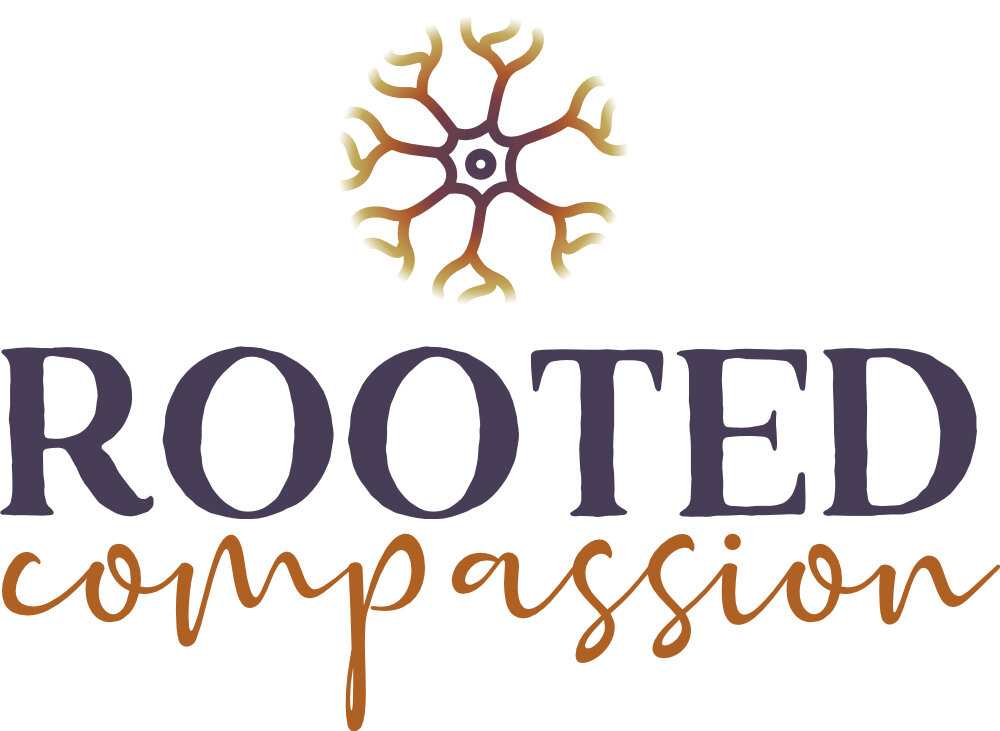Grandma's Kitchen: Early Awareness of my Nervous System Responses
Grandma’s kitchen. This small room contained the bustle of daily activity and served as the setting for most of my experiences with my maternal grandmother. It was there where she shared life with us through her baking, cooking, and what-needs-to-get-done conversations. Grandma didn’t rest often. But when she did, we found ourselves congregating in her living room around her comfy chair, where she offered her loving support through what I can only call transformative, peace-giving foot rubs. No matter what had been happening in my young life to worry or upset me, the gentle pressure on the bottom of my feet brought me to a deep, complete sense of calm and clarity. It was in this way that I first learned of the regulating effects of healthy and safe touch.
My personal interest in emotional healing, which included working with some component of the body system, continued to grow through personal experiences and professional interest/study in bodywork therapies and ultimately led to my work in Mental Health Counseling. This path of learning exposed me to bits of neuroscience which helped to clarify why paying attention to nervous system responses matters for effective healing.
Dr. Dan Siegel, M.D., a leader in the interdisciplinary field of Interpersonal Neurobiology, offers the following definition of “mind” in his book, Mindsight:
“The human mind is a relational and embodied process that regulates the flow of energy and information”
Reference:
Siegel, D. J. (2001). Mindsight. Bantam Books
The word that stood out to me when I first read Dr. Siegel’s definition of the human mind was “embodied”—essentially, this refers to how something manifests or shows up in the body. It made sense to me to describe the mind as a process, and especially one that included the body’s responses. The integration of mind and body is now a central focus in various fields of healing, and I believe this integration is not only intuitive but also necessary to the effective healing of one’s mental health.
In addition to helping clients explore and process their thoughts and memories of painful experiences, I also offer support and tools that may help clients to explore and work with sensory information and body responses associated with their difficult or traumatic experiences. One of the ways I’m able to offer this type of support is with Emotional Freedom Techniques. I had the opportunity to learn about Emotional Freedom Techniques, or EFT, through continuing education coursework for therapists and other professional practitioners.
EFT is a group of techniques used to help clients decrease the level of distress associated with a specific memory event from the past that is felt in the body in the present moment. With the support of the therapist, who provides a safe, therapeutic presence and guides the exercise, the client identifies and describes a specific event, focusing upon the emotions experienced as well as the areas of discomfort or responses felt in the body. Then techniques of EFT, including tapping on specific acupressure points, breathing techniques, eye movements and voice vibration, are presented by the therapist while the client follows and repeats. After participating in the EFT exercise, most clients report a lower level of distress felt in the body as they then retell the story of the specific event.
In this way, EFT may help clients release the emotional impact of stressful or traumatic life events from the body-mind system.
My grandmother may not have even been aware of the calming effect of her foot rubs, but I recognized the sense of inner calm and safety it gave me in those moments. Experience, and the ways experience influences emotional and mental wellness, is unique for every individual. One of my goals in serving clients through counseling is to help them to recognize and develop their own inner sense of felt safety. I’m honored to offer this support with tools like EFT that may help clients discover ways they can experience more moments of mental and emotional safety.
We are so excited to have Julie offering this very effective treatment option. Studies have shown Emotional Freedom Techniques can help in the following ways:
significant decreases in pain, anxiety, depression, cravings and PTSD.
Significant decreases in resting heart rate, blood pressure, and cortisol.
Happiness levels increased as did immune system function.
Reference:
Bach, D, Groesbeck, G, Stapleton, P, Sims, R, Blickheuser, K, Church, D. Clinical EFT (Emotional Freedom Techniques) Improves Multiple Physiological Markers of Health. Journal of Evidence-Based Integrative Medicine. 2019;24: 1-12. doi: 10.1177/2515690X18823691
Our life experiences are all unique—our safe memories and our traumatic ones. The counselors at Rooted Compassion recognize this and work to help our clients reach their mental health healing through methods like EFT. Our counselors also specialize in the following:
Emotional Freedom Techniques
Somatic Focused Counseling
EMDR
Cognitive Behavioral Therapy
Dialectical Behavior Therapy
Mindfulness-Based Practices
Trauma Responsive Care Techniques
Acceptance and Commitment Therapy
Motivational Interviewing
Rooted Compassion Counseling is Ohio’s leading practice for trauma therapy through the lens of the nervous system. Our focus is to walk alongside clients as they heal from depression, anxiety, trauma, grief and/or loss. If you or someone you know are seeking to explore and build an inner sense of calm and safety, please contact us today. We would love to help you to find a counselor and counseling techniques that will guide you on your mental health journey to healing.




